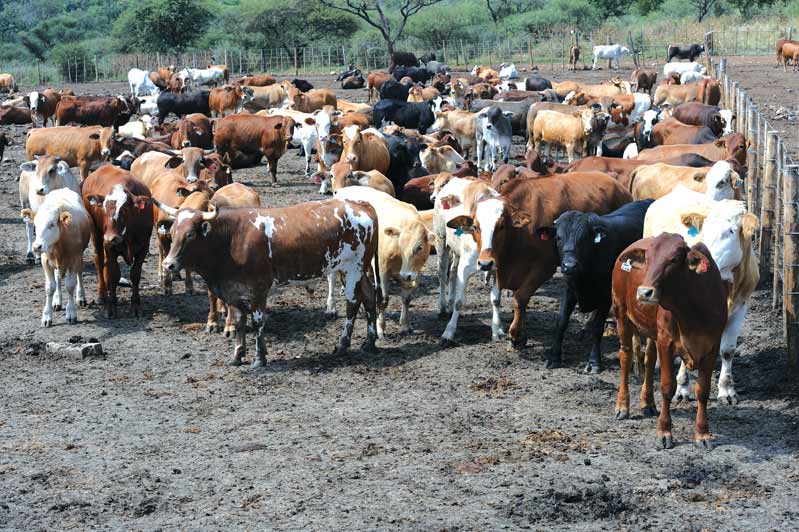Having identified Zambia’s economic growth potential in the agricultural sector, among other sectors, France has sought to collaborate and invest in the country’s sustainable forest management and help protect its biodiversity and preserve the forest.
The French Government has stepped up its quest to broaden the relationship with the African state, realizing the need to bolster the country’s growth potential in some growth sectors and help in providing the country the much needed visibility on the international scene.
French Minister of State for Development, Francophone and International Partnerships Chrysoula Zacharopoulou during a meeting with Zambia’s minister for Green Economy and Environment Collins Nzovu extended an invite for three ministers in agriculture, tourism and commerce for a visit to that country next year.
The two-countries are expected to collaborate and engage on matters of investment opportunities and possible areas of collaboration with the private sector in France with a view to invest in Zambia ahead of Zambia’s President Hakainde Hichilema sometime next year.
Ms. Zacharopoulou noting Zambia’s growth capacity in the three sectors offered its expertise to bolster growth and help to contribute to the growth of the economy and create jobs.
In agriculture, France was ready to support Zambia in sustainable forest management aimed at protecting biodiversity and preserving the forest. Zambia’s strides in protecting its natural resources have been identified by France and seeks to join hands and help in attaining sustainable forest management for real returns.
France will take a leading role in convincing and mobilizing other European countries to support Zambia and other developing nations in sustainable forest management.
France, further notes Zambia’s high indebtedness and offers to mediate in seeking debt restructuring to ignite the country’s economic growth prospects thwarted by such commitments which have decimated growth, says a statement from the Zambian embassy in France availed to FRA.
And Zambia’s environment minister, Mr. Nzovu commended France for its renewed interest in transforming Zambia’s economy through debt restructuring programmes and climate financing.
Zambia’s ambassador to France, Dr. Christine Kaseba commended Ms. Zacharopoulou for conveying President Hakainde Hichilema’s message to his counterpart Emmanuel Macron on the need for a speedy resolution to the debt restructuring programme.
Last week, Minister Nzovu noted Zambia’s inability to maximize returns from the timber sub-sector and sought technical and financial assistance to achieve value addition for the timber resource if value is added to the product.
He assures of Zambia’s unmatched good investment policies favorable to their business.
The Government has devised measures intended to protect private investors. Of the forests’ estimated total growing stock of 2.9 billion m3, the total volume of commercial timber has been estimated at 340.1 million m3 (or 12%), study shows.
The distribution of commercial volume by forest type and by province shows that of the forests, the semi‐evergreen (Miombo) forests have 75% of the commercial volume, and of the provinces, Northwestern has 33% and Western 18% of the commercial volume respectively.
An earlier assessment undertaken in the mid‐1980s estimated 61.2 m ha (80% total land area) and the Forest Resource Assessment estimated only 31.2 m ha (41% total land area) and ILUA returned 49.9 m ha (66% total land area).
However, Zambia despite its increasing exports of high value species of among other varieties, rosewood, teak, and mukwa, mainly to China and South Africa, small quantities being consumed on the domestic market illegal trade has heightened.
Recent incidents have revealed illegal exportation of various species of timber, devoid of the Government realizing real returns. Zambia Revenue Authority recently seized about 30 metric tons of illegal rosewood logs destined for the export market.
The logs were found to be thicker than the allowable 15 cm with others as thick as 32 cm, an illegality according to the law, ZRA indicated in a statement seen by FRA.
Illegal logging in rosewood alone leads to staggering losses of about US$3.2 million in revenue and estimated bribes paid to state officials of about US$1.7 million.
The deforestation annual rate, estimated at 250,000–350,000 hectares, results in an annual loss of US$500 million in natural capital stock, revenue estimates show.
Globally, Illegal logging accounts for 50-90% of all forestry activities in key producer tropical forests, such as those of the Amazon Basin, Central Africa and Southeast Asia, and 15-30% of all wood traded globally, data shows.








